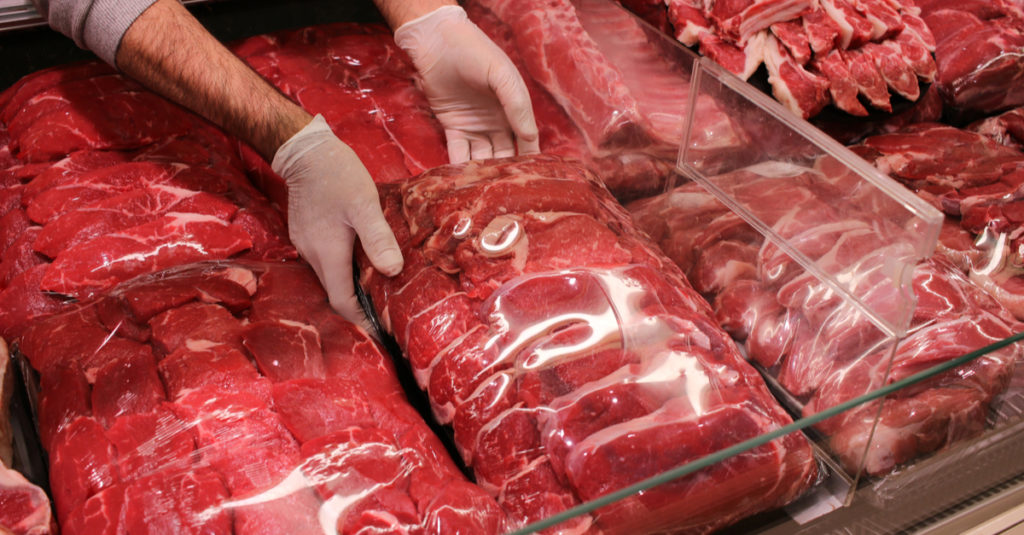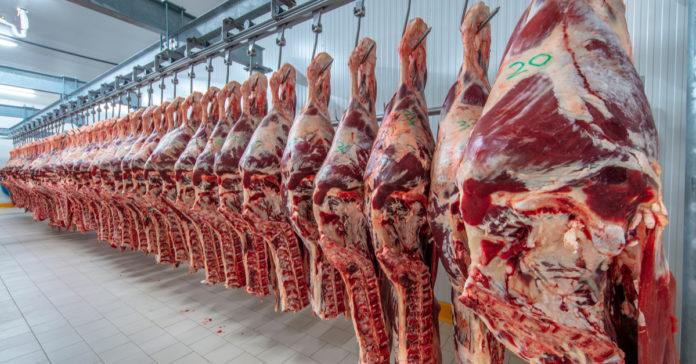Animal rights organisations are threatening the right of Muslims and Jews to slaughter animals in the UK without stunning, according to a think tank.
The Centre for Muslim Policy Research (CMPR) says Muslims must act to ensure that the current law – which exempts Muslims and Jews from the need to pre-stun animals before slaughter – is upheld so that religious communities can continue to enjoy halal and kosher meat.
The CMPR report says: “The slaughter of animals for food production as per the religious rituals of Muslims and Jews is currently under threat from animal rights organisations who are campaigning to implement a blanket ban on slaughter without stunning.
“Muslim and Jewish communities require specific conditions under which an animal should be slaughtered for it to be fit for their consumption, as per Zabiha (for Muslims) and Shechita (for Jews) guidelines. Stunning an animal before slaughter presents doubt on whether the animal is permissible for consumption for Muslims and Jews, as per these guidelines.”
If pre-slaughter stunning becomes a requirement there will be a drastic lifestyle impact for British Muslims, the report says.
“The UK halal market is worth approximately 4.5 billion and is expected to grow 5% annually. Removing access to locally sourced meat slaughtered in accordance with zabiha will negatively impact the UK meat industry as consumers are likely to turn to imported halal meat as a substitute.
“British Muslims consume up to eight times more meat and poultry than their non-Muslim counterparts… A survey of halal meat consumers showed that 70% of respondents preferred meat from animals that had not been stunned before slaughter.
Subscribe to our newsletter and stay updated on the latest news and updates from around the Muslim world!
“Lack of access to kosher and halal meat will unfairly burden religious minorities and may lead to legal challenges on freedom of religion grounds… Driving the UK’s halal and shechita meat industry abroad to countries without the UK’s robust animal welfare standards and supply chain traceability may have a negative impact on animal welfare standards.”
Animal rights lobby
The report highlights the main religious viewpoints of both the Muslim and Jewish communities.
The Halal Monitoring Committee (HMC) and the Halal Food Authority (HFA) are currently the main bodies in the UK which represent Islamic viewpoints on the issue of stunning. ShechitaUK is the main monitoring body that represents the Jewish community’s viewpoint on the issue.
According to the HMC, which the report says represents the majority view amongst Muslims: “Animals stunned before slaughter are not permissible for consumption by Muslims under any circumstances due to risks of compromising Islamic guidelines on Zabiha.”
Similarly, ShechitaUK says: “All forms of mechanical stunning cause pain on application for animals and therefore meat of an animal stunned prior to slaughter are always prohibited for consumption for Jews.”

Alternatively, the HFA, which the report suggests represent the minority viewpoint of Muslims, says that” “Stunning animals prior to slaughter is allowed on the condition that the animal does not die from stunning and is slaughtered as per Islamic guidelines on Zabiha.”
On the other hand, the Royal Society for the Prevention of Cruelty to Animals (RSPCA), which advocates for pre-slaughter stunning, says it is “opposed to the slaughter of any animal without first ensuring it is rendered insensible to pain and distress. We therefore believe that all animals should be stunned prior to slaughter.”
It adds that “meat produced from animals not stunned before slaughter should be clearly labelled to allow consumer choice.”
However, the CMPR report states that stunning was never introduced as a measure to prevent pain for the animal, saying “the original and historical advantage of stunning animals prior to slaughter was to immobilise or control the movements of the animal, not to prevent pain or distress before death.”
Furthermore, the report says “that common methods of stunning are not humane and cause considerable pain to the animal.”
The report recommends:
- A review of existing regulations to improve slaughterhouse management and slaughter practice as a whole instead of focussing only on religious slaughter methods to ensure animal welfare.
- The introduction of a permit that allows slaughterhouses to slaughter animals without stunning.
- A review of regulation surrounding common stunning methods.






















